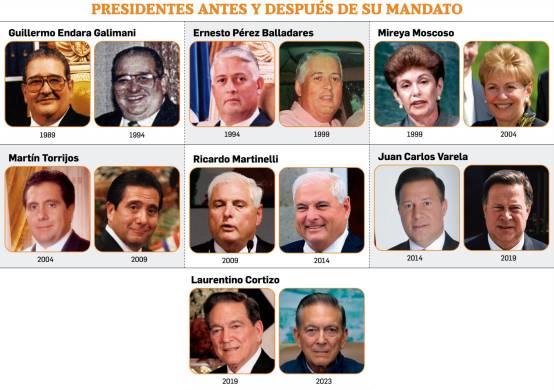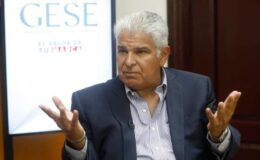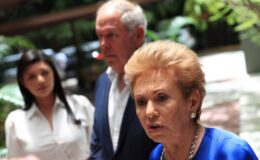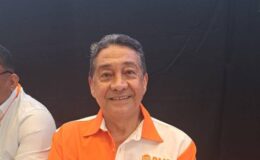History of the Panamanian Presidents, a story within itself.
- By : James Bryson
- Category : Politics

Since the invasion of the United States, Panama has had seven presidents, who, despite being elected for a five-year period, have so many responsibilities that they seem to work for much longer.
“Every stressful situation has a significant health cost. And the responsibility that comes with exercising the position of president is of great importance and, therefore, can have negative effects on it,” political analyst José Stoute told this medium.
José ‘Pepe’ Mujica, former president of Uruguay, already mentioned it after finishing his term. “The power is like when you have new shoes that are tight, when you get home and take them off, you feel a great relief.”
Articles 179 and 180 of the National Constitution of the Republic state that a president in Panama must perform 24 different functions, which range from the appointment of ministers of State to the sanction and promulgation of laws.
Consequently, it is common to see significant physical wear and tear on rulers once they leave office, a product of both their presidential work and personal ailments and illnesses.
The study ‘The Health of the President and Presidential Candidates: The Public’s Right to Know’, developed by George Annas, in 1995, alleges that “maintaining the proper balance between medical privacy and the public’s right to know can be complicated.” when the patient is the president”, this is because medicine has a central legal and ethical principle that states that doctors should not reveal private medical information to people who are not involved in a patient’s care without the patient’s authorization.
In Stoute’s opinion, when talking about the president of a country, the situation changes “the health of a president, and even that of a candidate, must be public knowledge, especially in a country like Panama, where the president is almost a Monarch due to the powers that he constitutionally holds,” he reflected.
Dr. Audiey Kao, in his study ‘Health and mental competence of presidents’ (2000), noted that this must have certain limits “over time, privacy has given way to the right to know, and the expectation of a greater and more complete disclosure about the health of both the president and the candidates for office. Some argue, however, that there should be limits on medical disclosure, arguing that the president and presidential candidates deserve a reasonable degree of privacy regarding their medical records,” Kao added.
In Panama, we have the case of presidential candidate Ricardo Lombana, who said, in mid-January, that he suffers from prostate cancer, although he clarified that it is “completely curable” and does not imply much risk. “I am eager and stronger than ever,” stated the candidate, through his social networks.



No Comments